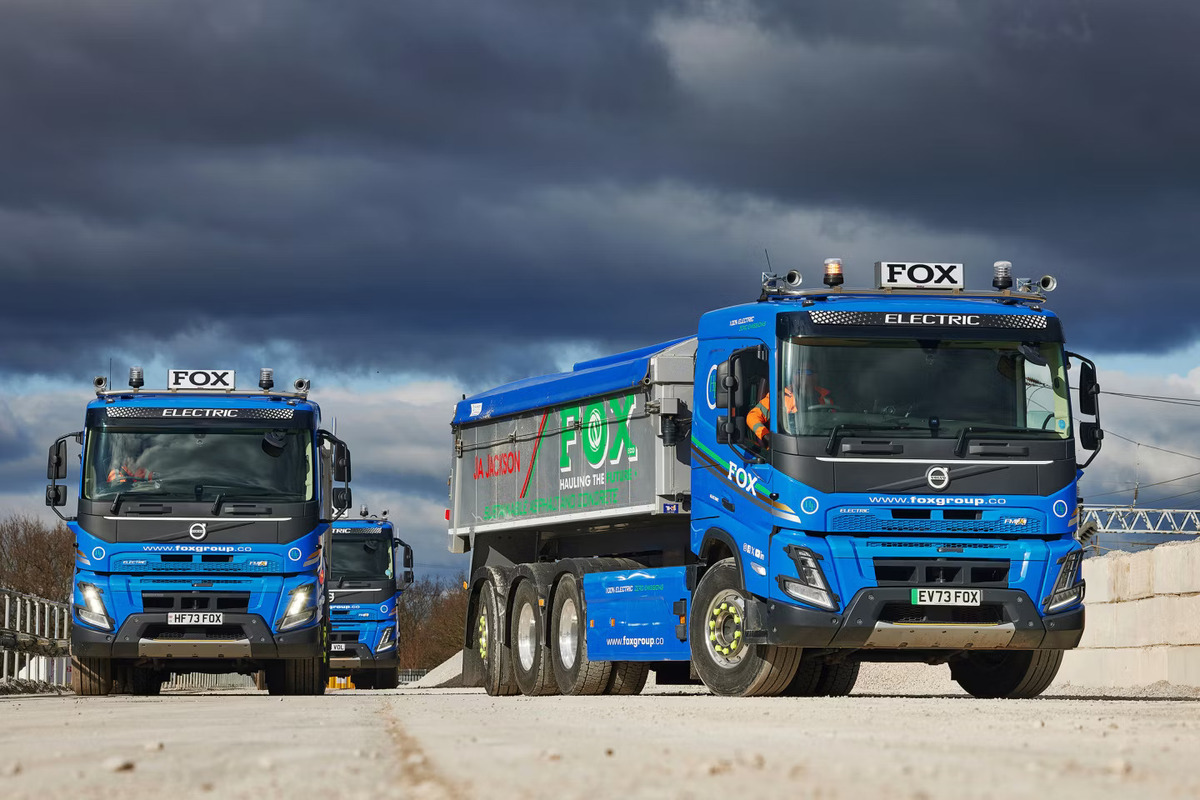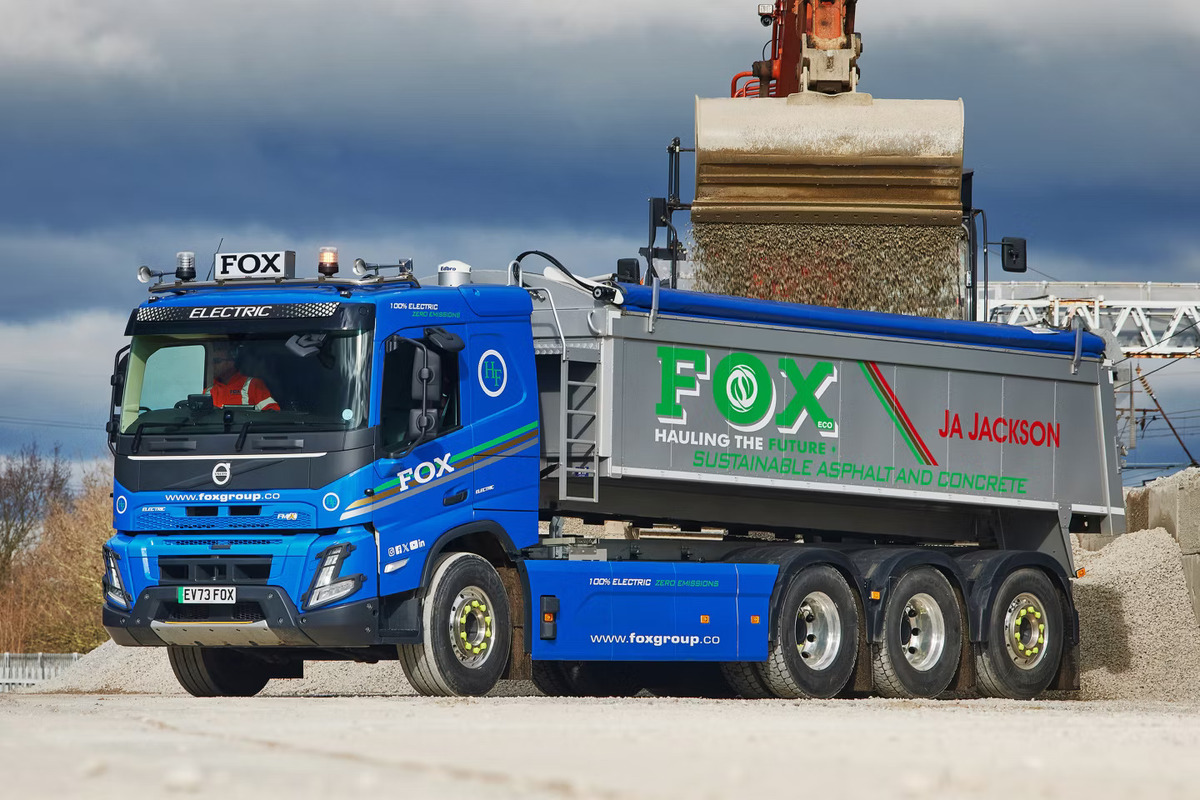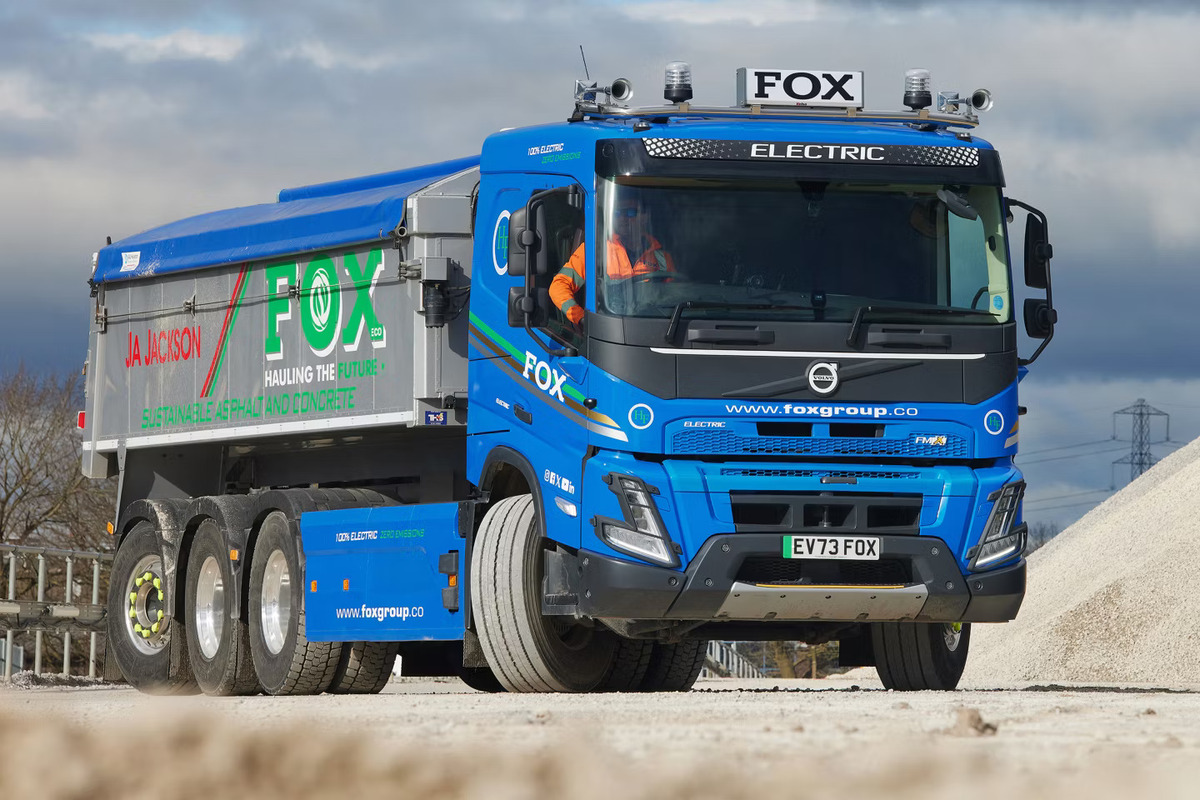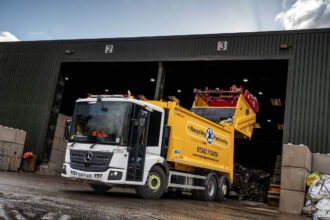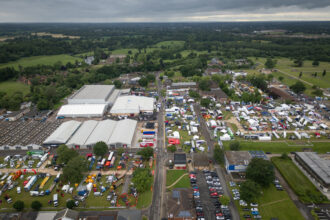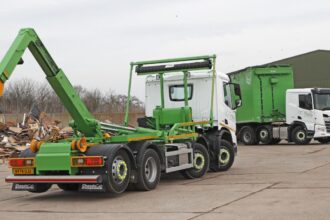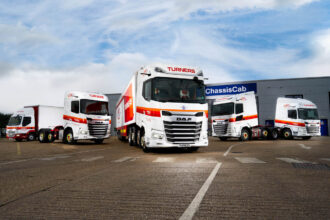Fox Group Electric Trucks to Support New Low Carbon Asphalt Plant
FAMILY-OWNED FOX GROUP IS TAKING DELIVERY OF FOUR NEW ZERO TAILPIPE EMISSION VOLVO TRUCKS WHICH WILL BE UNSED TO SERVICE A LOW CARBON ASPHALT PLANT BEING CONSTRUCTED AT ITS SITE IN LEYLAND.
The order comprises three Volvo FMX Electric 8×4 Tridem tippers – to be followed shortly by an FH Electric 6×2 tractor unit.
Paul Fox, Managing Director of the Blackpool-based business, says: “Electric trucks are no longer on the horizon; they’re here, now, and key to reducing our carbon footprint. At Fox Group we see it as our role and responsibility to make the switch; we’re demonstrating to the whole of the sector that in the right applications, the transition from diesel to electric can be happening now.”
The FMX Electrics will be used to deliver asphalt from a soon to be established low carbon asphalt plant to local construction sites, before backloading sand from Fox Group’s nearby quarry into the plant – with zero tailpipe emissions and minimum noise. It complements the recent re-opening of the former Leyland railhead, which Fox Group is using to bring in enough materials daily to replace 95 eight-wheeler loads. The use of electric vehicles is vital on Fox Group’s journey to net zero, reducing the reliance on fossil fuel.
Supplied by Neil Crook, Customer Solutions Executive at local dealer Thomas Hardie Commercials, each new FMX Electric is plated at 32-tonnes and benefits from a hydraulically steered tag axle, operating with an insulated aluminium tipper body manufactured by local bodybuilder AJ Hayton.
In a first for the UK, one of the FMX Electrics has been manufactured with fossil-free steel to form the truck’s chassis frame. Produced using a completely new technology based on hydrogen, it ensures a much lower climate impact than conventionally produced steel. It is being gradually introduced to Volvo’s heavy-duty electric trucks, as part of plans to make them both net zero in operation, and when it comes to the materials used in their construction.
Fox adds: “We’re confident that with these electric Volvos, together with our other investments in electric plant and the railhead, we’re showing how we can transport large volumes of materials in a much more efficient and sustainable way.”
“It’s the right thing to be doing for the planet and the communities we operate in, and we’re proud to see Fox Group leading from the front.”
Specified with five traction batteries, each FMX Electric runs on three electric motors, delivering 666hp of continuous power. The massive power is handled by an electromobility traction control system which ensures precision vehicle control even on slippery surfaces, all driven through Volvo’s popular 12-speed I-Shift gearbox – a long-standing favourite with drivers.
The FH Electric tractor unit will feature a matching driveline, but with six batteries, whilst operating at up to 44-tonnes. It will be used in conjunction with a 12m tri-axle tipping trailer, transporting stone from the railhead to local concrete plants.
To support the new vehicles Fox Group has extended its DC charging facilities, with the installation of additional recharging equipment at the railhead. Trucks will operate predominantly during the day, returning to base at night to recharge.
They have been supplied on five-year Volvo Gold Contracts which includes preventive maintenance, repairs, real time monitoring to keep track of the health of the batteries and battery replacements, should performance drop below agreed levels. The trucks are also backed by a full suite of Volvo Connect fleet management services to help boost productivity and energy efficiency.
Fox Group currently operates from 32 locations nationally, specialising in the supply and haulage of aggregates, recycled materials, muck-shift, earthworks and civil engineering projects. It has a fleet of more than 350 vehicles, consisting of six- and eight-wheel tippers, artics, low loaders and road sweepers to work alongside its impressive 4,500 pieces of plant and machinery, and a team of more than 850 people.

